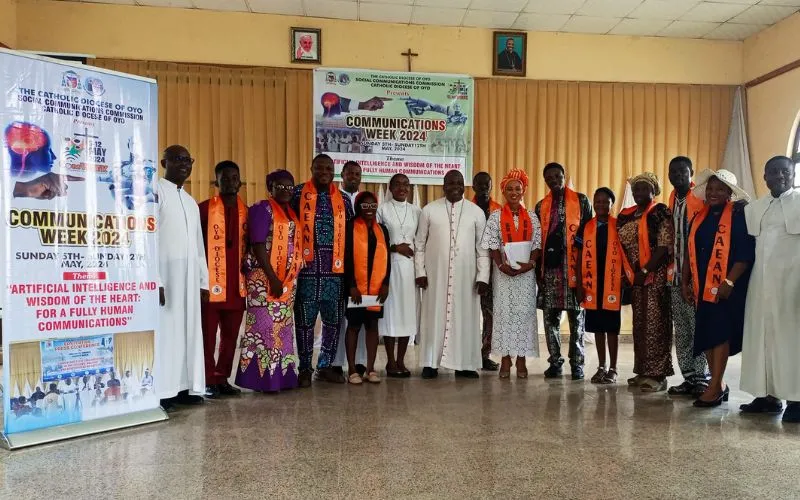“The inclination of the heart is the determinant for what we allow AI to become,” the Local Ordinary of Nigeria’s Catholic Diocese of Oyo further says.
He reiterates Pope Francis’ call for ethical considerations regarding digital technologies, saying, “We also must follow models of ethical regulation in order to prevent unpleasant and unwholesome outcomes from the advancement of this technology namely exploitation, instrumentalization and commercialization of humanity and human relationship.”
“Thus, the Pope guides us to decide not to let AI obliterate AI (Adamic Intelligence) or enslave it,” Bishop Badejo cautions, and continues, “We should not succumb to become fodder or victims of algorithms but insist on retaining our freedom to grow in the wisdom of the heart which derives from almighty God.”
Established in 1967 by Pope Paul VI, WCD that provides an opportunity to reflect on the challenges and opportunities of modern means of communication is marked on the Sunday before Pentecost.
Recalling the Holy Father’s WCD 2024 Message, Bishop Badejo says, “Human beings have always realized that they are not self-sufficient and have sought to overcome their need for assistance and their vulnerability by employing every means available.”
“From the earliest prehistoric artifacts, used as extensions of the arms, and then the media, used as an extension of the spoken word, we have now become capable of creating highly sophisticated machines that act as a support for thinking. Each of these instruments, however, can be abused by the primordial temptation to become like God without God (cf. Gen 3), that is, to want to grasp by our own effort what should instead be freely received as a gift from God, to be enjoyed in the company of others,” the President of CEPACS says.
AI, he observes, “has been around for much longer than we care to admit, in our cell phones, remote controls and computers. Only now it is more advanced and more impactful because it even assumes human features and behaviors.”
Today, the Nigerian Catholic Bishop who was appointed member of the Vatican Dicastery for Communication in December 2021 further says, “the explosive pervasiveness of AI in business, economy, education, social relationships and even religion seems to have swept many off their feet and left many totally enchanted.”
He goes on to reflect on the perceived power of AI, sharing that “some even suggest that AI has become as powerful as to be seen as a religion in itself, seeming to be omnipotent, demanding allegiance and ‘worship’ from people.”
“We can identify two big extremes of those who are totally dumbfounded and are infatuated by the new technology as a be-all and know-all and others who are so disgusted or frightened by the new developments as to demonize it and thus reject it altogether,” the 62-year-old Nigerian Bishop who started his Episcopal Ministry in October 2007 as Coadjutor Bishop of Oyo Diocese says.





